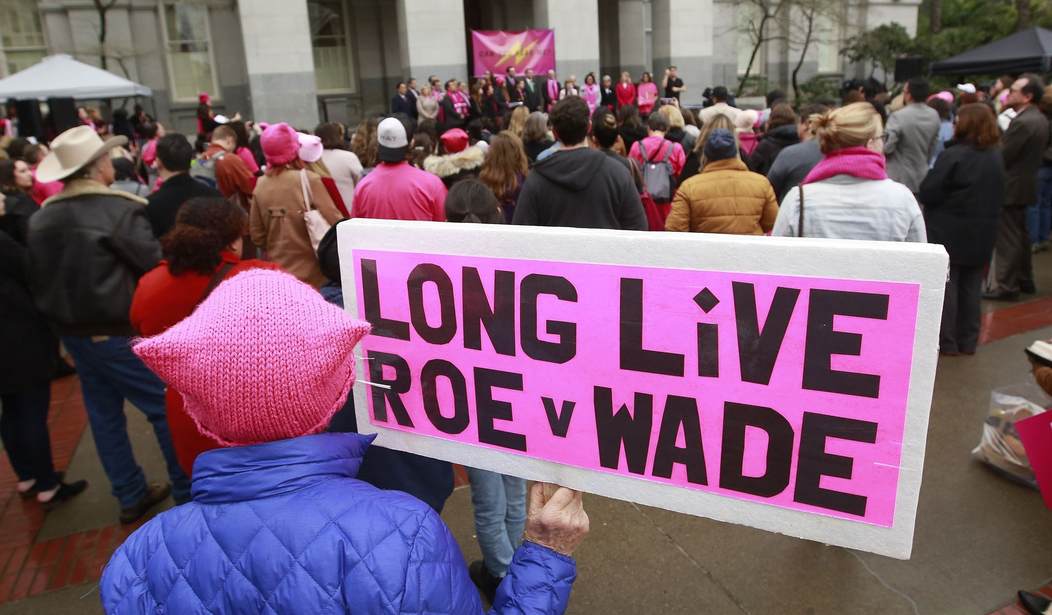Willie Parker knows that a lot of people hate him. Such knowledge is unavoidable, given the fact that people often shout at him as he is entering a clinic to perform abortions. How does he get through it with the knowledge that he is so hated? In response to this question, Parker simply says, “I channel the courage of the civil rights legacy.” In other words, he’s more than just a modern day St. Paul as we learned in the last installment of this series. He’s Martin Luther King, Jr., too.
Parker may be able to provide a source of “courage” to get him through a “procedure day” in which he offers “abortion care” to as many as fifty women. But he cannot understand the source of his opponents’ rage. These are people who stand outside an abortion clinic and shout “murderer” at Parker. Sometimes they plead with the women entering the clinic saying, “Think twice! Don’t murder your baby!” This perplexes him so deeply that he poses this hypothetical scenario to readers of his book, Life’s Work: A Moral Argument for Choice:
“Imagine, if you will, these verbal assaults being hurled at any other person for having made any other consequential health care choice - the decision to pursue a potentially fatal course of chemotherapy, for example, ‘Don’t risk your life! Suicide!’”
This one hypothetical sums up the chronic intellectual and moral confusion of America’s most prolific killer of innocent unborn human beings. In one sentence, Parker shows that he is incapable of distinguishing between these two vastly different moral pursuits: a) Entering a health care facility intending to save one’s own life, and b) Entering a health care facility intending to end the life of another.
Furthermore, Parker does not seem to grasp the empirical reality that chemotherapy, in contrast to abortion, produces something less than a 100% guarantee of death. Fortunately, in contrast to Parker’s tortured reasoning, pro-lifers follow a very simple logical process. Lest anyone misunderstand what we are saying, here is the syllogism:
Recommended
Major premise: It is wrong to intentionally kill an innocent human being.
Minor premise: Abortion intentionally kills an innocent human being.
Conclusion: Abortion is wrong.
But Willie Parker refuses to acknowledge that pro lifers actually care about stopping the intentional killing of innocent human beings. He is committed to smearing his opponents by attributing sinister motives to them without a single shred of evidence. For example, Parker claims that men oppose abortion because of a “misplaced horror of women’s sexual autonomy.” He further asserts that, “Women’s sexual independence is the thing men have always wanted to control.”
Willie Parker provides no evidence to support his speculative attacks. In fact, his 217-page defense of abortion lacks a single footnote or endnote. Thus, there is no way of verifying the empirical basis of these attacks. However, he does make a few admissions in his book, which reveal why he is so eager to divert attention from his own motives.
Willie Parker admits to aborting humans as early as six weeks after they are conceived and charging $550 for the procedure. He also admits to aborting pregnancies that are “father along” and charging as much as $1400 for those procedures. He also claims that he sometimes performs as many as fifty abortions in a single day. If we assume that he makes the bare minimum of $550 on each procedure then Parker makes $13,750 in a single day’s worth of providing “abortion care” (read: killing innocent human beings). This helps explain why he wants people to refrain from making judgments about people’s sex lives. The more sex people have, the more money he makes in the abortion clinic.
In order to justify earning a living in this line of work, Parker could simply deny the minor premise that abortion intentionally kills an innocent human being. But he does not do this. Instead, he denies the major premise that it is wrong to intentionally kill an innocent human being. He does so by dehumanizing the unborn in general – for example, insisting that the term “unborn child” is not medically accurate. He notably uses the term “person” as a substitute for “human being” throughout his book. This allows him the privilege of substituting a term that is not medically accurate for one that is – in the hopes of persuading people, as opposed to humans, that some of their neighbors are more deserving of life than others.
But what specifically makes some humans deserving of protection, while others are deserving of destruction? Parker begins to make his specific case on page 11:
“On a single day in Montgomery, between the hours of, say, 6:30 a.m. and noon, I will perform at least two dozen abortions, and the women who come to me are of every race: most range in age from about nineteen to nearly forty, although sometimes I see girls as young as twelve, shocked and confused by their current circumstances and waiting with their mothers. The people who pass the new laws concern themselves with fetuses, but these are humans I am caring for – real people, not merely biological organisms with the potential to become such.”
It is worth repeating that Parker denies the personhood of the unborn, not their humanity. In other words, he asserts that when you come into existence it is not the Creator’s job to endow you with rights. That job is reserved for men who will determine your value by virtue of the functions you can perform for society. They will also consider the burdens you impose on those already granted the dignity and status of a full member of the moral community. Once charged with granting basic rights, these men can also take them away.
In a nutshell, Willie Parker channels the courage of the civil rights legacy by borrowing the view the Supreme Court first articulated in 1857 in Dred Scott v. Sanford.
…To Be Continued.

























Join the conversation as a VIP Member